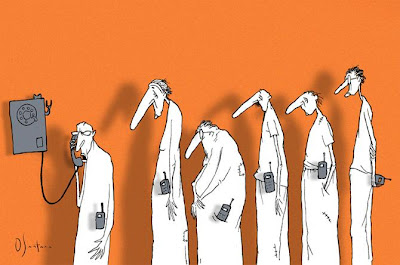The Castro regime's announcement that for the first time Cuban citizens will be able to buy and sell their own homes has spurred an outpouring of irrational exuberance that real change is finally coming to the island-prison of Dr. Castro. "To say that it's huge is an understatement," one interested observer told the New York Times. "This is the foundation, this is how you build capitalism, by allowing the free trade of property."
Another told Reuters, "The ability to sell houses means instant capital formation for Cuban families ... It is a big sign of the government letting go." Still another writes in the Christian Science Monitor that these are "incredibly meaningful changes."
Such optimism is ill-founded. In fact, it is indicative only of one of two things: either it betrays a brazen political objective (Time magazine: "Why the U.S. Should Drop the Embargo and Prop Up Cuban Homeowners") or it demonstrates just how low the bar of expectation has been placed for what the Cuban people need and deserve that we must celebrate mere crumbs tossed their way by the Castro dictatorship.
Indeed, sweep away the hype and all you see are daunting hurdles as to how this announcement will change in any way the regime's suffocating control of the Cuban population. The new order restricts people to "ownership" of one permanent residence and one vacation home (as if the average Cuban is in any position to own a second home); all transactions must be approved by the State; no explanation is given on how you grant titles to homes that either have been confiscated from their rightful owners, have been swapped multiple times in the underground economy, or which house multiple families because of the severe shortage of available housing; the construction industry remains state-controlled; and the regime itself admits this order reflects no backsliding on the preeminence of the State in controlling the country's economic and political systems.
Beyond these challenges, however, is the fundamental fact that you cannot conjure private property rights, let alone the free trade in property, out of thin air. Those rights exist only where they are rooted in a credible, impartial, and transparent legal superstructure that can protect one's property, settle disputes, and guarantee transactions against the predations of the State. Anything less is a rigged game where the State is the dealer.
This is how the State Department's annual Human Rights Report characterizes Cuba's judicial system: "While the constitution recognizes the independence of the judiciary, the judiciary is subordinate to the imperatives of the socialist state. The National Assembly appoints all judges and can remove them at any time. Through the National Assembly, the state exerted near-total influence over the courts and their rulings ... Civil courts, like all courts in the country, lack an independent or impartial judiciary as well as effective procedural guarantees."
Translation: Cubans' ability to "own" property, trade, or leverage their property to build capital will continue to exist at the sufferance of the State. And what the State giveth, the State can taketh away. The bottom line is that, ultimately, all Cubans will really own is a piece of paper that says they own something.
Rather than empowering individual Cubans, the regime's goal in allowing the open trade of houses is to hopefully siphon more Cuban American money into the island's perennially bankrupt economy. With average Cubans on the island too poor to buy or improve their dilapidated dwellings, their hope is relatives in Miami and elsewhere will remit even more cash to the island attempting to improve their relations' situation. Indeed, the cynicism of relying on Cuban exiles to support the Cuban economy has never bothered the Castro brothers in the slightest.
The Castro regime recognizes the increasing unrest among the repressed and impoverished Cuban people for fundamental change, but they are capable only of prescribing more painkillers rather than the radical surgery that is needed to restore the nation's health. Pretending to devolve more autonomy in individuals' lives is just one more cruelty inflicted on the Cuban people over five decades of dictatorship, a cruelty made worse by the cheerleading from abroad.
By José R. Cárdenas
Source: FP Blog

















